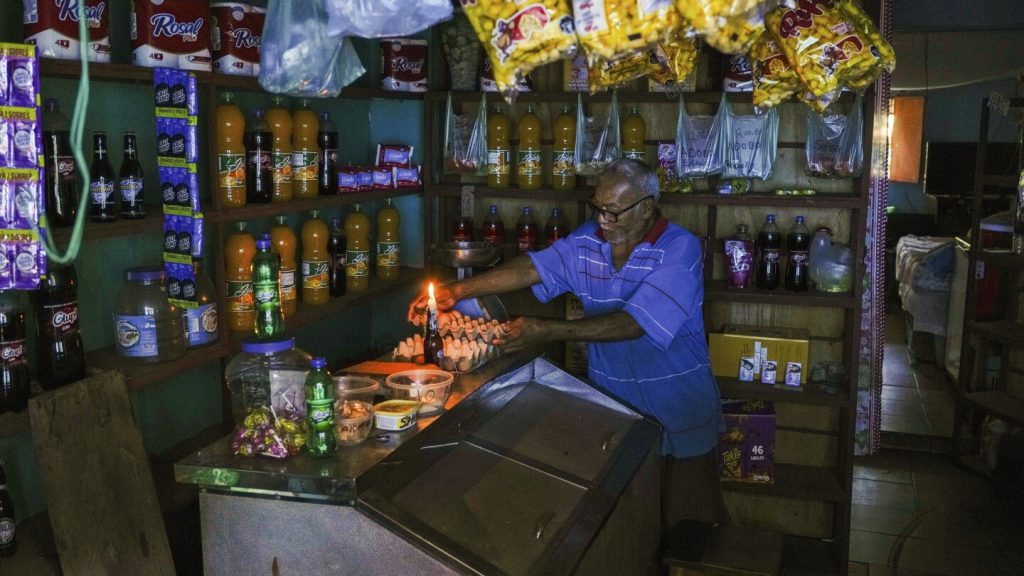Venezuelans experienced a major power outage on Friday, affecting the capital city of Caracas and several states. President Nicolás Maduro’s government attributed the outage to “electrical sabotage” that began around 4:50 a.m. The communications minister, Freddy Nanez, stated that all 24 states of Venezuela were at least partially impacted by the outage, describing it as a desperate attempt by Maduro’s opponents to destabilize the government. The government vowed to overcome the situation and maintain the peace and tranquility of the Venezuelan people.
As the day progressed, power was gradually restored in many parts of Caracas after a day of sporadic outages. Maduro addressed the nation on state TV in the evening, thanking Venezuelans for their patience during the chaotic day. Businesses had to close, hospitals relied on backup generators, and the closure of the subway left many stranded. This incident was reminiscent of the power outages experienced in 2019 during a period of political unrest, which the government often blamed on its opponents. Energy experts, however, attributed these outages to infrastructure issues within the country’s hydroelectric system.
Despite the stabilizing economy and reduction of inflation and shortages through de facto dollarization, Venezuelan officials continue to point fingers at their opponents for any disruptions, no matter how minor. Just a few days before the latest outage, there was a brownout that affected Caracas and several central states, with the interior minister attributing it to the opposition’s strategy to impact the population. Though these incidents are concerning, residents in the capital took Friday’s blackout in stride, with lighter traffic during rush hour and complaints about the lack of communication due to the loss of cellphone service.
The power grid in Venezuela heavily relies on the Guri Dam, a hydroelectric power station that has faced challenges due to poor maintenance, lack of alternative energy sources, and brain drain as millions of Venezuelan migrants have left the country seeking better economic opportunities. The government’s quick blame on opponents for disruptions raises questions about the reliability of the power grid and the government’s ability to address these issues effectively. As Venezuelans continue to navigate through these challenges, the need for a sustainable and resilient power infrastructure becomes increasingly important to ensure the well-being and stability of the country.


